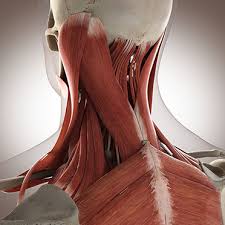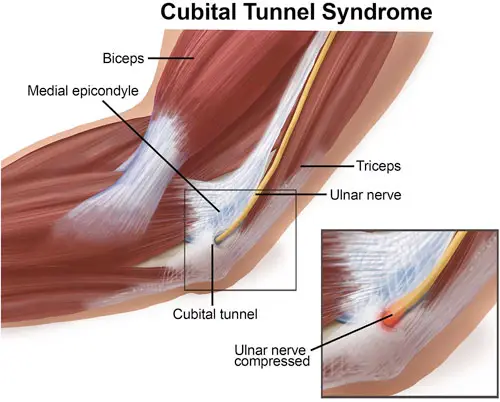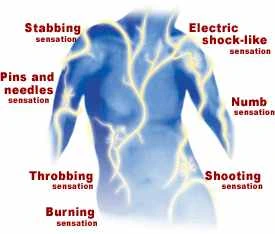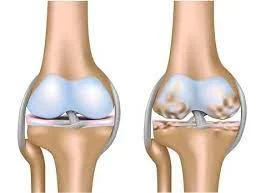Tooth Nerve Pain
Introduction
Tooth nerve pain, sometimes referred to as toothache, can be a painful condition that can vary in intensity from a dull aching to a sharp, stabbing agony. The pulp, or interior nerves of the tooth, is what causes it to irritate or inflame.
Toothache, which is another name for tooth nerve pain, can be a very painful and upsetting experience. It happens when the teeth’s internal nerves get irritated or inflamed. This illness can have a major effect on a person’s day-to-day functioning, making it difficult for them to speak, eat, or even sleep soundly.
Anyone suffering from dental discomfort must be aware of the causes, signs, and available treatments for tooth nerve pain.
We’ll examine all the facets of tooth nerve pain, from its underlying causes to its potential treatments, which include routine dental procedures and over-the-counter medications.
Tooth Nerve Pain: What Causes It?
Causes of Tooth Nerve Pain
The pulp, a collection of blood vessels and nerves in the middle of your tooth, is where the nerves in your teeth are found.
There are 2 types of nerve pain:
- Sensitivity to Pulp
If one of your teeth is the source of your nerve discomfort, the pulp is probably affected. The following are some of the reasons why your teeth’s pulp is affected by nerve pain:
- fractured, chipped, or cracked teeth
- infection or tooth decay
- strain from teeth clenching or grinding a recent dental filling
- Sensitivity of Dentin
2. Sensitivity of Dentin
More common dental nerve pain is called dentinal sensitivity. When the enamel on your teeth is worn down or damaged, external stimuli like heat, cold, and acid can reach the dentin layer of your teeth’s nerve endings, causing discomfort.
Dentinal sensitivity can be caused by:
- unfilled dental cavities
- receding gum line
- Using teeth-whitening products
- overly vigorous tooth brushing
- a recent gum surgery that reveals your tooth’s roots
The majority of the time, tooth nerve pain is caused by underlying problems that impact the condition of the tooth nerve and its supporting tissues. The main reasons are as follows:
- Dental Decay: Dental caries, or cavities, are the most frequent cause of pain radiating from teeth. Teeth can develop holes in them due to dental enamel damage caused by oral bacteria that break down carbohydrates and produce acids. If the decay is not stopped, it may eventually get to the tooth’s nerve and cause excruciating pain.
- Dental Infections: Dental decay that penetrates a tooth’s pulp, which is made up of blood vessels and nerves, may become infected. An abscess, a painful pus-filled swelling at the tooth’s root that causes painful toothache, may result from this infection.
- Dental Trauma: Mishaps or wounds to the mouth can chip, crack, or fracture teeth, exposing delicate nerve endings. This exposure may cause acute, suffering pain.
- Gum Disease: Gum recession can result in the exposure of the tooth roots due to periodontal disease, which is characterized by inflammation and infection of the gum tissues. Pain and nerve sensitivity may result from this. For this condition, a specialized treatment option called periodontal therapy is available.
- Dental Procedures: Periodontal treatments like crowns, fillings, and root canals can occasionally cause a brief irritation of the tooth nerve, which results in a toothache.
- Bruxism: Consistently clenching and grinding your teeth can put too much pressure on them, which can irritate and hurt your nerves.
- Tooth erosion. Tooth erosion is the process by which the enamel on teeth progressively wears away. It can be caused by acidic foods and drinks as well as medical conditions such as gastroesophageal reflux disease (GERD). The tooth’s nerve becomes more exposed and susceptible to outside stimuli as the protective layer thins, which causes sensitivity and pain.
- Tooth Sensitivity: The enamel on teeth can become worn down over time due to abrasive toothpaste, tooth whitening procedures, or vigorous brushing, which exposes the dentin and nerve endings. This may result in sensitive teeth and pain, particularly when consuming hot, cold, or sugary drinks or food.
- Cracked Tooth Syndrome: Occasionally, a tooth may get minute cracks that are difficult to see. Because these cracks aggravate the tooth’s nerve endings, they can be extremely painful to bite or chew on. The pain can be irregular, making a diagnosis difficult.
- Sinus Infections: Pain from sinus infections can also refer to the tooth nerve. Although the teeth themselves are healthy, sinusitis can put pressure on the roots of the upper back teeth, which can result in toothaches. This is because the roots of the teeth are located close to the sinuses.
- Impacted Wisdom Teeth. Wisdom teeth, or third molars, can occasionally become impacted, which prevents them from fully erupting from the gums. Wisdom teeth that are impacted may put pressure on nearby teeth, causing pain and discomfort.
- Nerve Degeneration: As people age, their teeth’s nerves may deteriorate and lose some of their ability to feel pain. Because of this, an elderly person may develop tooth decay or other dental problems without experiencing any severe pain, which could cause treatment to be postponed and result in complications.
- Systemic Conditions: Diabetes and autoimmune diseases are two examples of conditions that can have an impact on dental health and raise the possibility of tooth nerve pain. Inadequate blood flow and a compromised immune system can hinder the tooth’s capacity to mend and fend against infections.
Tooth Nerve Pain Cause Other Health Issues:
Even though tooth nerve pain might not be the direct cause of other health problems, it can still have a big impact on a person’s general health. Tooth pain that is unbearable and persistent can cause:
- Sleep Disturbances: Pain from teeth sensitivity can disrupt sleep cycles, resulting in exhaustion and lack of sleep.
- Diminished Quality of Life: People who suffer from chronic toothaches may find it difficult to eat, speak, or focus, which will lower their quality of life.
- Mental and Emotional Distress: People who experience chronic pain may experience stress, anxiety, and depression.
- Impaired Oral Health: Postponing dental care out of fear of discomfort can exacerbate existing conditions and possibly cause long-term harm.
Symptoms of Tooth Nerve Pain
The following are some of the most prevalent signs of dental nerve pain:
Pain:
- Dull ache: A dull aching is frequently the first symptom of nerve injury and may seem like a continuous, throbbing pain along the gum line of a single tooth.
- Sharp, stabbing pain: This might be the result of a cavity, crack, or a problem with an existing filling or crown.
- Throbbing pain: This is a serious sign that indicates an infection has entered the pulp of the tooth.
Sensitivity:
- Sensitive teeth react aggressively to temperature fluctuations, with discomfort persisting even after the stimulus has been withdrawn.
- Sweets and acids: Just like temperature, some foods and drinks can cause teeth to become sensitive.
Other symptoms include:
- Swelling: This might occur around the tooth or in the jaw and cheek.
- Pus or discharge: This comes from around the tooth and indicates an infection.
- Fever and chills: These systemic symptoms might be caused by an infection in extreme situations.
- Headaches may arise as a result of pain radiating to other locations.
- Bad taste or taste: An indication of illness or degeneration
How To Diagnosis Tooth Nerve Pain Damage?
Identifying the type of tooth nerve pain and how severe it is is essential to obtaining the right care. Tooth nerve pain may manifest as any of the following symptoms:
- Persistent Toothache: A toothache that is intense, throbbing, or continuous and doesn’t go away could be the result of nerve involvement.
- Sensitivity To Temperature: Severe sensitivity to hot or cold meals or drinks may indicate sensitivity to nerves.
- Pain When Chewing: Pain or discomfort during the chewing or biting process may be a sign of irritation to the nerves.
- Swelling and Pus: A dental infection affecting the nerve may be indicated by swelling surrounding the affected tooth, pus, or a bad taste in the mouth.
- Radiating Pain: Referred pain can occasionally result from tooth nerve pain radiating to the head, jaw, or ear.
- Ache Period: A prolonged period of pain could indicate that there is nerve involvement.
- Triggered Pain: Certain actions, such as eating, drinking, or even simply breathing in cold air, can cause nerve pain. Keep an eye out for any particular behaviors that hurt you every time.
- Pain Intensity: Pain can range in intensity from moderate to unbearable. A more serious nerve problem could be indicated by intense, throbbing pain.
- Pain Location: Make a note of the specific location of the pain. Although tooth nerve pain typically starts in a single tooth, it can also radiate to other parts of the head and face or feel in adjacent teeth.
- Tenderness to Touch: Increased sensitivity or pain may be felt when lightly tapping or pressing on the impacted tooth, indicating nerve involvement.
- Gum Recession: If the gums have pulled back, revealing the tooth root, this could make the nerve more sensitive to outside stimuli and cause pain.
- Prior Dental Experience: Tooth nerve pain can be triggered by dental procedures such as fillings, crowns, or root canals. If the pain develops following dental work, nerve irritation may be the cause.
- Pain at Night: Tooth nerve pain can get worse at night, making it more uncomfortable and interfering with sleep.
- Color Changes: If a tooth becomes discolored, particularly if it becomes dark or gray, it could be a sign of nerve damage.
- Pain Relief: If over-the-counter analgesics such as ibuprofen or acetaminophen fail to relieve the toothache, there may be a problem with the nerves.
- Emotional Reaction: Tooth nerve pain can cause a great deal of emotional lack of sleep. It’s important to get evaluated and treated right away if the pain is seriously interfering with your everyday activities or producing anxiety or distress.
A physical examination, diagnostic tests, and medical history are used to diagnose tooth nerve pain:
- Medical History:
Your symptoms, including the location, length, intensity, and type of pain, will be questioned by the dentist. They will also ask about any triggers, such as sweets or hot or cold food.
Previous dental history, including current dental issues, past treatments, and allergies, will be crucial data.
- Physical Examination:
Your teeth and gums will be carefully inspected by the dentist, who will search for any indications of decay, chips, cracks, swelling, or irritation.
They will examine for soreness and possible abscesses by palpating the surrounding tissues and teeth.
Identification of sensitive areas can be aided by percussion examinations, which include tapping the teeth using a specialized tool.
3. Diagnostic Examinations:
The most popular imaging method for seeing the inside composition of teeth and surrounding bone is X-rays. They may make fractures, cavities, abscesses, or loss of bone visible.
In difficult circumstances, other imaging modalities such as CT or cone-beam CT scans may be used for more thorough assessments.
The viability of the dental nerve is ascertained using electrical pulp testing. A critical tooth may experience strong pain when a little electrical current is applied by a probe, which indicates inflammation.
What Are The Common Dental Treatment Procedures?
It is important to seek professional dental care when dealing with tooth nerve pain. To treat the underlying problems and relieve the painful tooth pain, dentists offer a variety of treatment options.
- Dental Fillings: The dentist may extract the decayed area and use dental material to fill the cavity if tooth decay is the source of the pain and has not yet reached the nerve.
- Root Canal Therapy: A root canal may be required if dental decay or infection gets to the tooth’s nerve. The diseased nerve tissue is extracted during this treatment, and to stop the infection from spreading, the root canal is cleaned, disinfected, and sealed.
- Dental Crowns: To protect and restore a tooth that has undergone root canal therapy or significant tooth decay, a dental crown may be attached to the treated tooth.
- Tooth Extraction: This may be the only course of action if the tooth nerve is severely damaged and cannot be saved. The dentist will go over replacement options like bridges or dental implants to replace the lost tooth.
- Treatment for Gum Disease: The dentist will suggest the best course of action to address the gum infection and inflammation if gum disease is the reason for the nerve pain.
- Dental bonding is a cosmetic procedure that can be used to fix teeth that are chipped, cracked, or discolored. To make the tooth appear as natural as possible, a tooth-colored composite resin is shaped, polished, and applied to the tooth’s surface. Dental bondings can reduce sensitivity and pain by protecting nerve endings from irritants.
- Dental implants: Dental implants provide a stable, long-term solution for effectively replacing lost teeth. They entail inserting a titanium post—which serves as a substitute tooth root—into the mandible. The missing tooth is then restored by placing a dental crown atop the post. By offering a stable and useful replacement for a damaged tooth, a dental implant can help treat tooth nerve pain by reducing the source of the pain.
- Dental Bridges: One or more missing teeth can be replaced with a dental bridge. During the process, one or more artificial teeth are used, which are firmly fixed by dental crowns attached to nearby natural teeth. By restoring a lost tooth, removing possible causes of discomfort, and fostering healthy dental function, a dental bridge helps treat tooth nerve pain.
- Dental Veneers. Dental veneers are thin, precisely crafted shells that are applied to the front surface of teeth to improve their aesthetic appeal. They can take care of problems like gaps between teeth, discoloration, and misalignment. By protecting and covering the tooth’s surface, a dental veneer can help lessen tooth nerve pain by lowering sensitivity and improving comfort levels all around.
- Dental inlays and onlays: These restorations are used to treat teeth that have moderate decay or damage. They are specific restorations that either fit into or over the tooth to give it back its strength, form, and functionality.
- Dental sealants are thin coatings applied especially to the chewing surfaces of molars that serve as protective layers. These coatings’ main objective is to prevent cavities from developing in the teeth’s deep pits and grooves.
A Few Do-At-Home Solutions
Although seeking professional dental care is crucial, the following at-home treatments may be able to temporarily ease mild tooth nerve pain:
- Saltwater Rinse: Applying a warm saltwater inhale to the affected area can help soothe it and reduce inflammation.
- Cold Compress: To help numb and reduce swelling, place a cold compress on the cheek next to the hurting tooth.
- Over-the-Counter Pain Relievers: Nonsteroidal Anti-Inflammatory Drugs (NSAIDs), such as ibuprofen, can help reduce inflammation and tooth pain.
- Clove Oil: Clove oil is a natural anesthetic with the ability to temporarily relieve pain when applied topically to a toothache.
- Steer Clear of Trigger Foods: You can stop the sensitive tooth nerve from becoming more irritated by staying away from extremely hot or cold foods and drinks.
- Garlic: Garlic’s basic antibacterial qualities can help ward against infections and lessen discomfort. Before applying it to the affected tooth, crush a clove of garlic and combine it with a little salt.
- Peppermint Tea: Peppermint tea can help relieve tooth nerve pain and has some mild numbing properties. Make a cup of peppermint tea, let it cool, and then move it around your mouth for a short while.
- Rinse your mouth with hydrogen peroxide that has been diluted with equal parts water. This may lessen oral inflammation and bacterial growth.
- Ginger Root: Due to its anti-inflammatory qualities, ginger root may help reduce dental pain. Crush a tiny bit of raw ginger root and bite it against the side of the sore tooth.
What to Do and Not Do When You Have a Toothache:
Do Examine Your Herb Drawer or Kitchen Cabinet
Were you aware that certain herbs possess analgesic and analgesic properties? These herbs may be in your kitchen cupboard. These plants may offer some short-term relief from toothache pain.
- Cloves or Oil from Cloves
It is well known that cloves and clove oil have anti-inflammatory qualities. Cloves contain a substance called eugenol, which when applied to the toothache site, may help reduce some of the inflammation. Apply a few tiny clove leaves straight to the affected tooth, allowing the cloves to get softer in your mouth.
It normally takes no more than ten to twenty minutes, so take the clove out of your mouth. Alternatively, just dab a few drops of clove oil onto the sore tooth if you have access to it. The pain may be subtly lessened by the anesthetic effect.
2. Turmeric powder
Spices like turmeric have inherent antibacterial and anti-inflammatory qualities. Add a little water to the powdered turmeric to make a paste. After that, apply this paste to the toothache location.
3. Mint pepper
Peppermint provides a mild numbing effect and is cooling. You can use some drops of peppermint oil on the area that hurts, or you can apply real peppermint leaves to your teeth.
4. Chamomile
Because of its anti-inflammatory properties, chamomile may help reduce edema. In warm water, steep a chamomile tea bag for a few minutes. Rinse your mouth with the tea after it has cooled to room temperature.
Do Try a Soothing, Warm Saltwater Rinse
You can stop bacteria from growing in your mouth by swishing some warm salt water around. Gargles with saltwater are beneficial for healing as well as calming toothaches. Just mix a half-teaspoon of salt with a cup of warm water, then use the mixture to rinse your mouth. As an alternative, use a diluted hydrogen peroxide rinse to clean your mouth.
Use a cold compression
Try applying a cold compress to the side of your face if you notice any swelling or if you just want to get rid of the pain from a toothache. Using a cold compress could help lessen inflammation and swelling. As a cold compress, you may stuff some crushed ice into a washcloth. For a few minutes, keep the cool cloth on your face. Repeat as necessary.
Avoid Putting an aspirin directly on your gums or teeth.
You’ve probably heard the old wives’ tale about applying aspirin to your gums or teeth to ease discomfort. Aspirin may cause tissue damage and be corrosive to the gums. Merely taking a pain medication orally by ingesting a capsule or tablet with water is a safer substitute.
Avoid Eating and Drinking Acidic Foods and Drinks
Naturally, acidic foods should be avoided when you have a toothache since they may make it worse. Don’t eat oranges and tomatoes, for instance. Sports drinks and sodas with carbonation may exacerbate your toothache. Also avoid drinking acidic drinks like grapefruit, orange, or tomato juice when you have a toothache.
Risk factor
Poor oral hygiene. The most frequent risk factor for tooth nerve pain is poor oral hygiene. Plaque and bacteria accumulate on your teeth when you do not clean and floss them regularly. This may result in gum disease, cavities, and other issues that can aggravate your teeth’s nerves.
- Broken or cracked teeth: If a tooth is cracked or fractured, bacteria may be able to enter the pulp and lead to an infection. Serious tooth nerve pain may result from this.
- Gum disease: A gum infection that can harm the tissues surrounding your teeth is known as gum disease. Gum disease might eventually result in tooth loss if treatment is not received. In the early stages, it may also hurt and irritate your teeth’s nerves.
- Gum recession: When your gums recede, your teeth’s roots show through. Your teeth’s roots are more sensitive to the effects of heat, cold, and acidic foods and beverages than the crowns because they are coated in a softer tissue layer. Tooth nerve discomfort may result from this.
- Crowns and fillings: While dental treatments like crowns and fillings are designed to preserve your teeth, they can occasionally irritate the pulp and result in transient discomfort felt by the nerves in your teeth.
- Grinding your teeth: Grinding your teeth can lead to significant dental stress. Your teeth may eventually shatter or crack as a result of this, which may hurt your tooth’s nerves.
- Sinus infections: A sinus infection may occasionally cause pain that seems like dental nerve pain and radiates to the teeth.
- Age: Adults experience tooth nerve pain more frequently than youngsters do. This is because cavities, gum disease, and other dental issues that might harm teeth’s nerves are more common in adults.
- Genetics: Some people are just more likely than others to experience tooth nerve pain due to genetic predispositions.
Complication
Increased Inflammation and discomfort: If dental nerve discomfort is left untreated, it can get worse over time and cause throbbing, pulsating pain that spreads to surrounding teeth. An inflammation that starts in one area may spread to other tissues, resulting in facial pain, gum swelling, and even trouble swallowing.
Abscess Formation: An abscess, or pus-filled pocket, may form near the tip of the tooth root if the inflamed pulp gets infected. This may result in severe discomfort, fever, and swelling of the face, necessitating prompt dental care and perhaps the prescription of antibiotics.
Damage to Surrounding Teeth and Bone: In extreme circumstances, an untreated abscessed tooth may erode the jawbone or cause damage to neighboring teeth, creating more issues and perhaps necessitating lengthy operations.
Nerve Damage and Tooth Loss: The tooth may become discolored, delicate, and prone to breaking if the inflamed pulp dies as a result of extended neglect. Rarely, nerve injury may develop in the region that is impacted. In the end, dental loss may result from untreated tooth nerve discomfort.
Systemic Health Risks: Severe oral infections have the potential to transfer to the bloodstream and result in potentially fatal illnesses like sepsis. Even though it is rare, it emphasizes how crucial it is to get dental care as soon as you feel even a small pain.
Summary
A painful condition that can result from some underlying dental issues is tooth nerve pain. It is essential to comprehend the condition’s causes, symptoms, and available treatments to seek timely and suitable care.
It’s important to see a dentist right away if you have a chronic toothache or any other signs of tooth nerve pain. A more comfortable and pain-free life can be achieved by ensuring optimal oral health and reducing tooth nerve pain with the help of professional dental care and good oral hygiene habits.
FAQs
Is injury to the tooth nerve serious?
Either a sudden accident or a slow degradation of enamel might cause nerve damage. It is advised to see your dentist, even if the discomfort is minor, as it is unlikely to go away on its own. If you don’t get better when the nerve pain starts, you might eventually need more aggressive care.
What happens if the discomfort in your teeth is ignored?
Situation that could be fatal: Rarely, if a toothache is left untreated, it may suddenly get worse. This occurs when your immune system responds to an infection with extreme toxicity, a condition known as sepsis, which can result in septic shock and even death.
Can dental discomfort go away on its own?
When faced with a bad toothache, many individuals choose to ignore it and hope it goes away on its own. On the other hand, things usually get worse the longer you ignore them. Rarely, if ever, can a tooth infection or other dental emergency heal on its own without the need for medical intervention.
How can I get rid of nighttime tooth nerve pain?
Here are some methods to lessen your discomfort so that you can rest well at night.
Make use of over-the-counter analgesics.
Hold your head up high.
Aim to avoid consuming cold, hard, or acidic foods just before bed.
Use mouthwash to rinse your teeth….
Apply an ice pack right before bed.
What relieves toothache pain the quickest?
Because they lessen inflammation, anti-inflammatory medications like ibuprofen, Advil, Motrin, or naproxen are effective in treating tooth pain, according to Huang. According to recent research, Advil (ibuprofen) and Tylenol (acetaminophen) work just as well for tooth pain as prescription drugs.
Is cutting off a tooth nerve a smart idea?
Its existence allows for the perception of pain, regulation of the dentin’s nutrient supply, and mineralization of the enamel. A tooth without a nerve is more likely to be destroyed because it lacks the essential components, although, in many conditions, its extraction is a required surgery.
How many teeth be made nerve-free?
We refer to this process as a root canal. To reach the nerve during a root canal, your dentist will create an aperture in the tooth’s crown. After that, they will use specialized tools to extract the nerve and any injured tissue from the tooth’s interior.
Which foods are detrimental to nerve pain?
Foods high in inflammation increase the amount of stress on injured nerves, exacerbating pain and discomfort. Certain foods should be restricted or avoided, such as highly processed foods, refined grains, added sugars, harmful fats, and gluten. Even nutritious foods may include unidentified substances that exacerbate neuropathy.
How do dentists handle damage to nerves?
surgery. Damage to the dental nerve can be treated surgically in some ways. The majority of these surgical techniques function by either forcing nerves to become less sensitive to pain or by severing the pain’s transmission from the body to the brain. Necrolysis is one such process that can be carried out externally or inside.
References
- Seymour, T. (2023, July 12). Everything you need to know about a dead tooth. https://www.medicalnewstoday.com/articles/319062#symptoms
- D. (2022, August 23). Tooth Nerve Pain: Causes & Treatments | Tooth Pain Relief. The 247 Dentist. https://www.the247dentist.com/dental-health-advice/tooth-pain-relief-tooth-nerve-pain/
- Tooth Nerve Pain: Causes, Pain Relief, and Home Remedies. (n.d.). Crest. https://crest.com/en-us/oral-care-tips/toothache/tooth-nerve-pain-causes-pain-relief-home-remedies
- Dentist, H. S. (2022, May 1). How Long Does Tooth Nerve Pain Last? Heavenly Smiles Dentist. https://heavenlysmilesdentist.com/how-long-does-tooth-nerve-pain-last/







